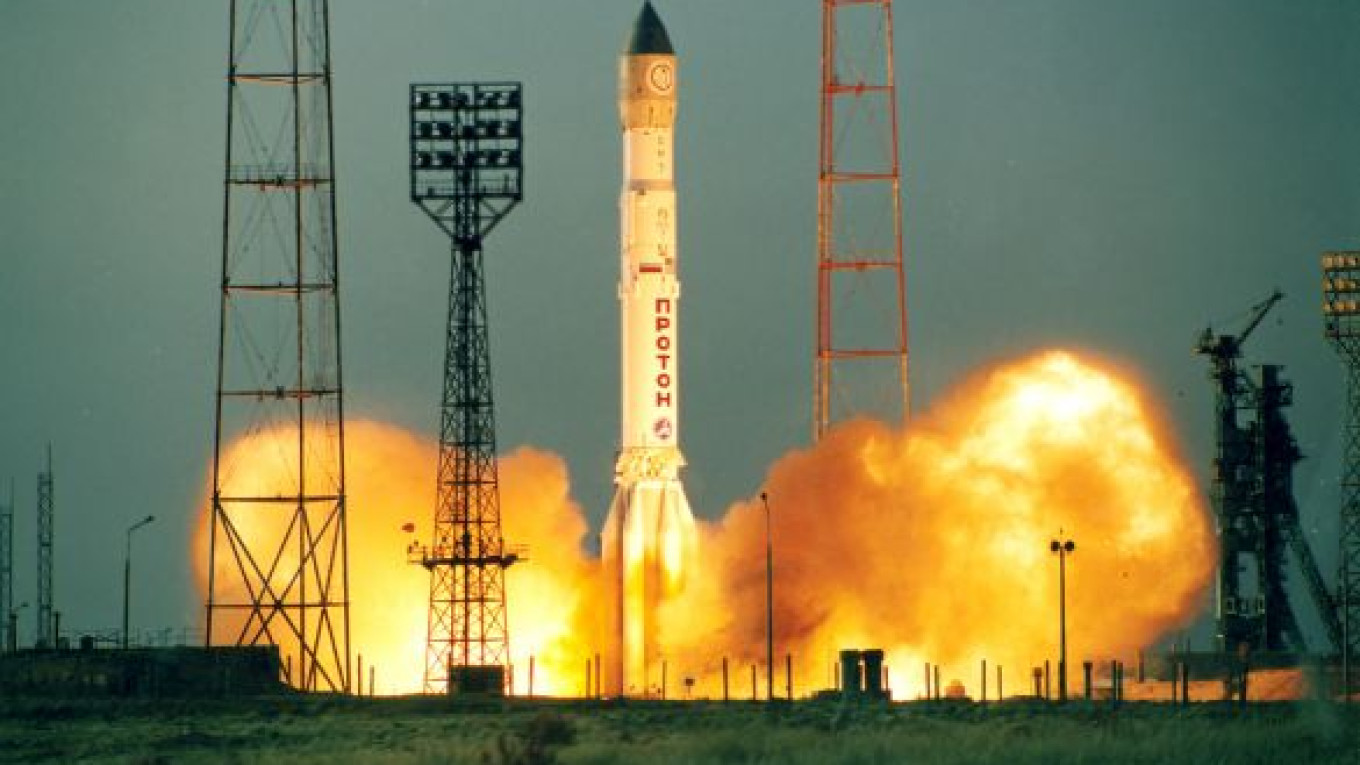Prime Minister Dmitry Medvedev on Thursday railed about the botched launch of two telecom satellites earlier this week, blaming in part what he called a slacker's attitude.
A Proton rocket malfunctioned after the launch Monday and failed to propel the Russian and Indonesian satellites into their target orbit.
The accident further damaged confidence in Russia, which has suffered similar failures since December 2010.
"I don't know the reason why the satellites perished, be it the booster, a mechanical defect, a slacker attitude or all of it combined and multiplied by the traditional slacker attitude. But it's simply impossible to tolerate this any longer," Medvedev said at a Cabinet meeting in his first public reaction to the crash. "We are losing our authority and billions of rubles."
The satellites cumulatively cost $100 million to $150 million, Interfax reported, citing an industry source.
Medvedev ordered government agencies to meet next week and propose measures to improve the industry's performance and punish the culprits.
Anatoly Perminov, the previous chief of the Federal Space Agency, lost his job last year, a few months after three Glonass navigation satellites launched by a similar Proton rocket crashed.
Russia accounts for 40 percent of the market for space launches and is building a new launch pad, Vostochny, in the Far East in a bid to stop leasing the Baikonur Cosmodrome from Kazakhstan.
Proton rocket launches, suspended after the malfunction, will likely resume by the end of next week, Kommersant reported Thursday. The Federal Space Agency is going to introduce additional prelaunch examinations.
While considering other issues, the Cabinet reviewed and approved a migration policy road map through 2015 that seeks to introduce harsher punishment for illegal immigration.
About 10 million immigrants now live in the country, according to conservative estimates, compared with 140 million officially registered permanent Russian residents.
Medvedev said the government must shield the Far East from "excessive expansion" of people from across the border, an apparent reference to Chinese immigrants.
Authorities must also prevent ethnic enclaves of foreigners from emerging, he said without elaborating.
Mikhail Titarenko, director of the Russian Academy of Sciences' Far East Institute, said news organizations hype up Chinese presence in the Far East.
"You can often hear in the mass media the message about so-called Chinese expansion, Chinese threat, Chinese dominance and so on," he said last month, Golos Rossii radio reported. "As a matter of fact, everything is quite the opposite."
A Message from The Moscow Times:
Dear readers,
We are facing unprecedented challenges. Russia's Prosecutor General's Office has designated The Moscow Times as an "undesirable" organization, criminalizing our work and putting our staff at risk of prosecution. This follows our earlier unjust labeling as a "foreign agent."
These actions are direct attempts to silence independent journalism in Russia. The authorities claim our work "discredits the decisions of the Russian leadership." We see things differently: we strive to provide accurate, unbiased reporting on Russia.
We, the journalists of The Moscow Times, refuse to be silenced. But to continue our work, we need your help.
Your support, no matter how small, makes a world of difference. If you can, please support us monthly starting from just $2. It's quick to set up, and every contribution makes a significant impact.
By supporting The Moscow Times, you're defending open, independent journalism in the face of repression. Thank you for standing with us.
Remind me later.


